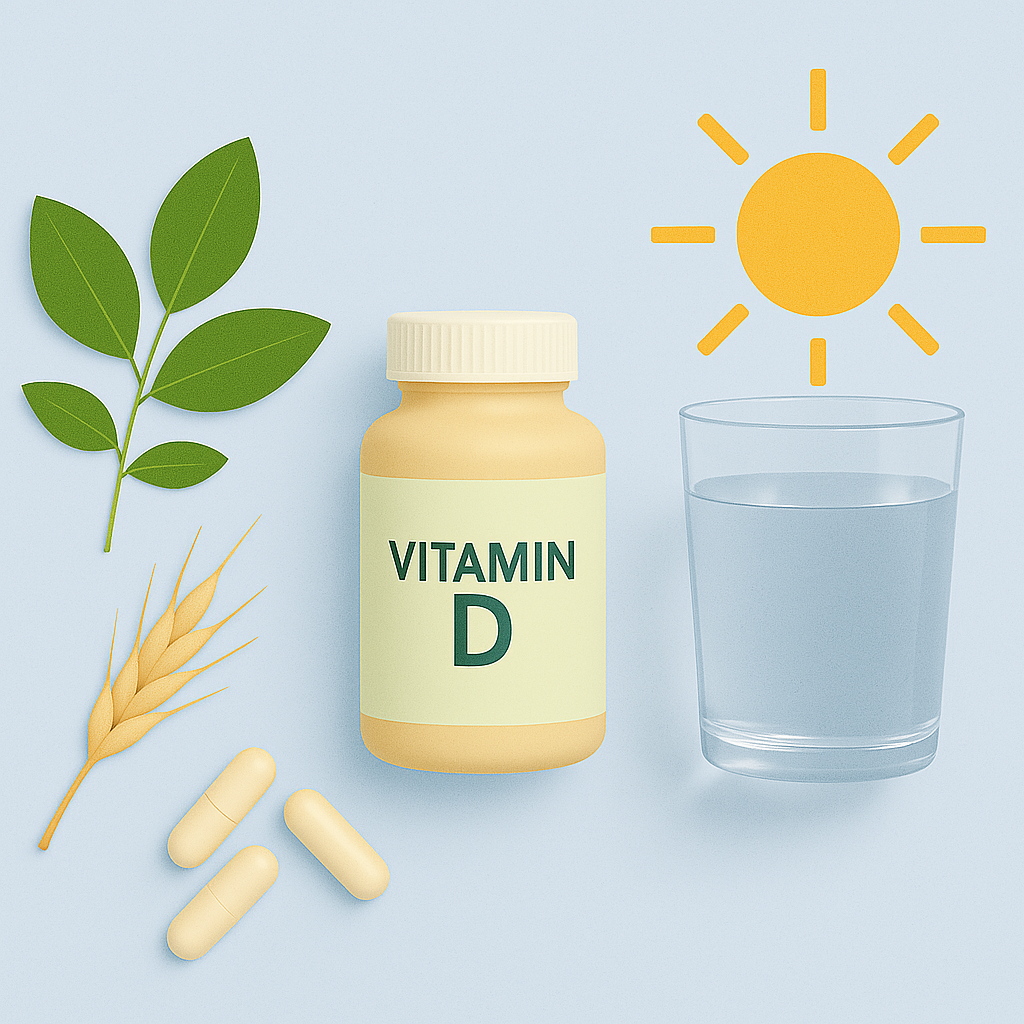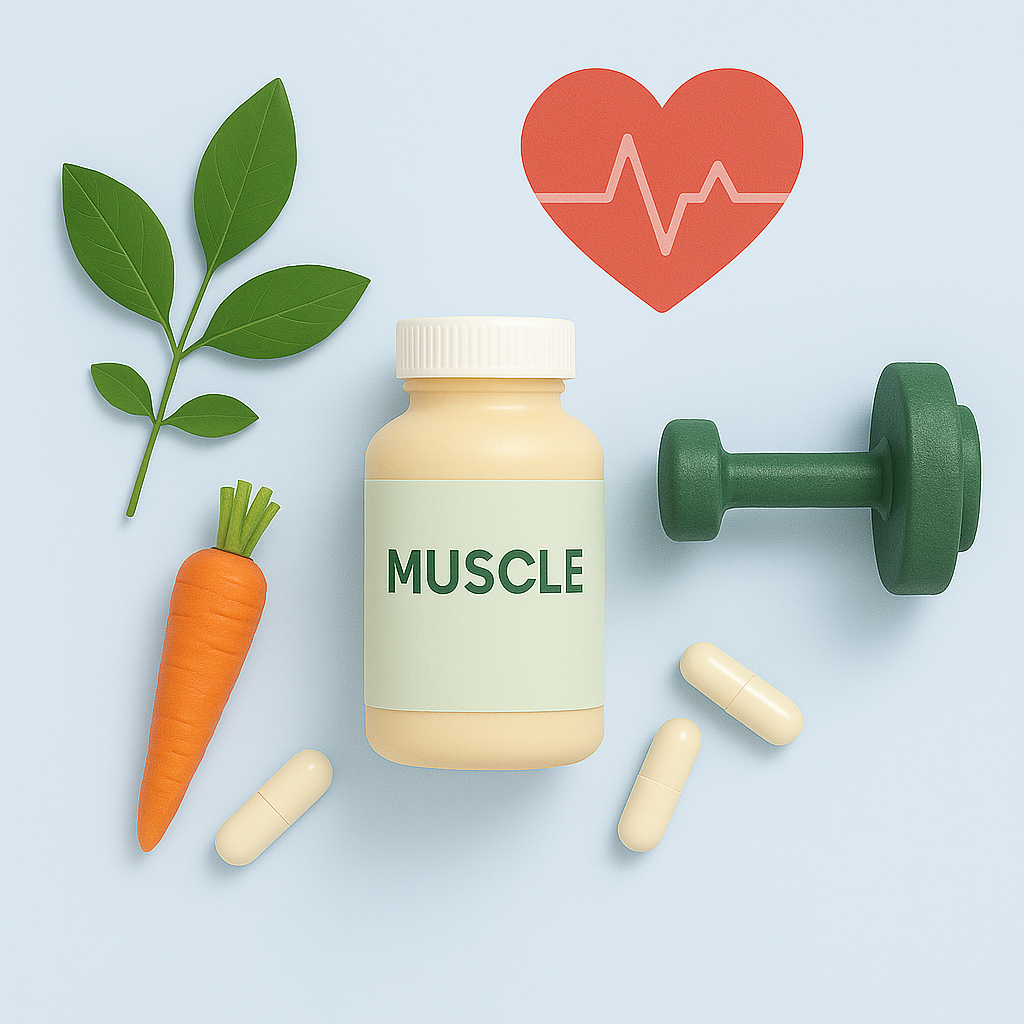Vitamin D, often referred to as the “sunshine vitamin,” has garnered significant attention for its vital role in maintaining healthy bones, supporting immune function, and assisting in cellular growth and repair. While the body can synthesize vitamin D through exposure to sunlight, many individuals rely on dietary sources or supplements to meet their daily requirements. This reliance has prompted a common question: what time of day is best to take vitamin D? This paper explores the underlying science of vitamin D supplementation and provides an inspirational perspective on adopting a consistent, health-focused routine.
The Role of Vitamin D in the Body
Vitamin D’s traditional association with bone health and calcium homeostasis has expanded in recent years. Research now indicates potential benefits that include cardiovascular health, cognitive function, and mood regulation. Specifically, vitamin D3 (cholecalciferol) is recommended for supplementation because it appears more effective at raising and maintaining overall vitamin D levels in the bloodstream. For those who have difficulty synthesizing enough vitamin D from sunlight such as individuals living in regions with limited sunlight or those who routinely use sunscreen — supplementation becomes even more critical.
Given vitamin D’s crucial role in immunity, many individuals choose to combine it with other immune support vitamins to create a comprehensive approach to health, further enhancing their body's natural defenses against illnesses.
When Is the Best Time of Day to Take Vitamin D or D3?
From a scientific standpoint, vitamin D is a fat-soluble vitamin and is most effectively absorbed when consumed alongside dietary fats. Taking vitamin D with meals containing healthy fats, such as avocados, nuts, seeds, or olive oil — can significantly enhance its absorption. Thus, the best time of day to take vitamin D or D3 is partly dependent on when a person typically consumes their most substantial, fat-containing meal. For some, this might be breakfast, while for others, lunch or dinner may be more suitable.
Circadian Rhythms and Hormonal Considerations
Some studies and anecdotal evidence suggest there may be a circadian rhythm component that influences how the body metabolizes vitamin D. Certain hormones that facilitate vitamin D’s actions in the body fluctuate throughout the day. Therefore, aligning supplementation with specific hormonal peaks could theoretically enhance vitamin D’s effectiveness. However, large-scale clinical trials that thoroughly investigate the best time of day to take vitamins remain scarce. Consequently, there is no universal consensus among researchers on whether morning, midday, or evening supplementation confers a significant advantage.
Consistency: The Key to Optimal Results
Regardless of any slight edge that a particular time might offer, the most crucial factor is consistency. Maintaining stable levels of vitamin D in the bloodstream requires a regular supplementation schedule. Whether an individual decides on a morning, midday, or evening routine, the key is to choose a time that aligns with a dependable daily pattern. For example, if you reliably eat your largest meal in the evening, taking vitamin D with dinner may be simplest. Alternatively, if your mornings are more structured, incorporating vitamin D into breakfast can be just as effective. Adhering to a schedule that fits seamlessly into your life increases the likelihood of long-term compliance and, by extension, supports optimal vitamin D status.
Potential Effects on Sleep Patterns
Some people experience mild sleep disturbances when taking vitamin D late in the evening. Although comprehensive scientific data are limited, nutrient intake can influence the body’s delicate balance of wakefulness and rest. If you find yourself struggling with sleep after taking vitamin D at night, consider experimenting with a morning or midday dose. Since individual responses can vary, fine-tuning your schedule based on personal experience can help you discover the best approach.
An Inspirational Approach to Vitamin D Supplementation
Beyond its direct physiological benefits, establishing a vitamin D routine can also have a profound emotional and motivational impact. Consistently deciding what time of day is best to take vitamin D represents a conscious commitment to self-care and personal growth. By aligning supplementation with other healthy habits such as following a balanced diet, staying hydrated, and engaging in regular exercise — individuals nurture an integrated approach to wellness.
Moreover, coupling vitamin D supplementation with even a brief moment in natural sunlight can further enhance overall vitamin D status. This simple practice also fosters an appreciation for the body’s remarkable ability to heal and renew itself. By recognizing and honoring our own capacity for health, we can transform supplement intake from a mundane act into a meaningful daily ritual.
Inference
So, when is the best time of day to take vitamin D? The answer depends on individual circumstances, including meal timing, daily schedules, and personal preferences. While some evidence hints at potential benefits tied to circadian rhythms, these findings are not universally conclusive. The most significant determinant of success lies in consistently taking vitamin D — preferably with a meal that includes healthy fats to ensure effective absorption.
In embracing a steadfast vitamin D regimen, one can cultivate not only improved physical well-being but also an enhanced sense of motivation and self-awareness. By transforming the simple act of supplement intake into a mindful, inspirational habit, we acknowledge our body’s incredible resilience and potential. Through this uplifting lens, taking vitamin D each day becomes a celebration of the deep connection between body and mind, reminding us that small, consistent steps can lead to profound, long-term benefits.
References
-
Healthline: "When Is the Best Time to Take Vitamin D? Morning or Night?"
This article discusses how taking vitamin D with meals containing fats can enhance absorption and explores the potential impact of supplementation timing on effectiveness. -
National Institutes of Health (NIH): "Vitamin D - Health Professional Fact Sheet"
This comprehensive resource details vitamin D's role in calcium absorption, bone health, and other bodily functions, emphasizing its fat-soluble nature and the importance of dietary fats for absorption. -
Journal of Bone and Mineral Research: "Taking Vitamin D with the Largest Meal Improves Absorption and Results in Higher Serum Levels of 25-Hydroxyvitamin D"
This study found that taking vitamin D supplements with the largest meal of the day significantly increased serum vitamin D levels, suggesting improved absorption. -
Verywell Health: "The Best Time of Day to Take Vitamin D"
This article suggests that taking vitamin D in the morning may align better with the body's natural rhythms and discusses the potential impact of evening supplementation on melatonin production and sleep quality.





